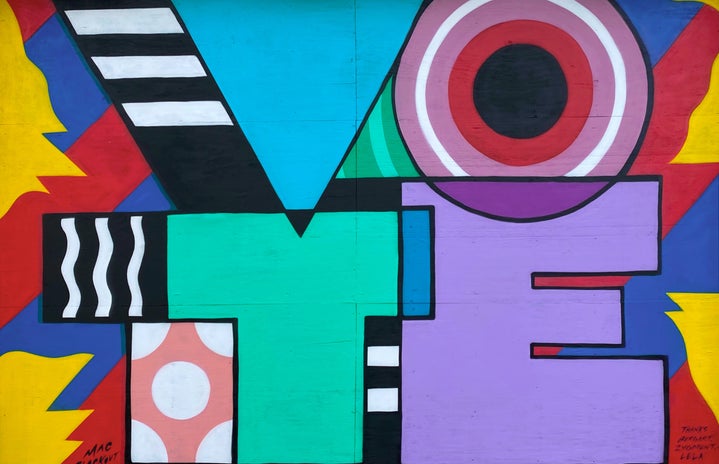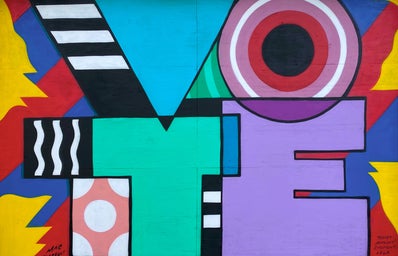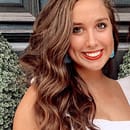On the morning of October 29th, 2020, I woke up, got dressed, and obliged my daily need to binge media as soon as I opened my eyes; bad habits. Before getting in my car, I thought about what kind of coffee I wanted that morning, was it worth it to drive those few extra minutes for Starbucks over Dunkin? What I didn’t worry about on my morning commute was my right to vote. Despite the fact that my destination was the polling location and that I would be voting in my very first presidential election, I wasn’t thinking about how there are still people just like me, in this country in the present day and age who struggle to vote.
Until a few years ago, when I thought of voting rights suppression, I thought only of women’s suffrage, of civil rights, of the 15th amendment. I thought about the stories I had been told of my great-grandmother, a woman who had woken up before the sun had one cold morning and walked many miles to cast her ballot as the first woman ever to vote in her county. For my family, the equal right to vote had started there and, to my knowledge, had never truly been challenged since. I realized I was blind, because of my privilege, I had thought those things to be a part of the past and was horrified to find them ingrained in my present, or at least far too recent to not weigh on my conscience. For many non-whites, however, this was not the case. Equal voting rights did not occur, as one might have hoped, after the 15th amendment or even the 19th amendment; unfortunately, it has not certainly come even after the Voting Rights Act of 1965. For many minorities, particularly Black and African Americans, poll taxes were meant to economically bar them from voting, literacy tests to disadvantage them due to low literacy rates among the Black community, as well other discriminatory measures were meant to disenfranchise their voting rights. African American women, in particular, struggled to overcome the barricades placed in front of them during the time between the 19th Amendment in 1920 and the Voting Rights Act of 1965. They had to rely on community measures and each other to educate, and encourage one another to overcome the obstacles in the way of exercising their civil rights.
Even today attributes such as increased voter ID legislation and obstacles to voter registration, such as restrictions in some states that refuse new voter registration in nearly the entire month leading up to an election, restrict American citizens’ right to vote. Those who may have trouble accessing legal documents needed to identify them, such as a driver’s license, find that this is another obstacle to their voting. In 2020, the ACLU reported that “over 21 million U.S. citizens do not have government-issued photo identification”, this would put approximately 11% of the U.S. population at risk of not being able to vote. In fact, research shows that voter ID laws have a suppressive effect on minority community voting turnouts, inhibiting the right to vote and the response to the governance of minority communities across the country. Frankly, this is not a statistic we can afford to fail to represent in any election and it is not a group that we should consciously seek to exclude.
The point I seek to make with all of this is, if you can vote, you should. Do not take your privilege lightly, do not underestimate the influence and power that you as an individual have. A devastating 50% of U.S. citizens aged 18-29 years old did not participate in the 2016 presidential election. This jarring statistic should not be one we settle into a habit of complacency with accepting, we must do better. So if you, like me, did not give much thought to your ability to vote this election, whether you have yet to or not, perhaps you should reassess what this says about your privileges, then seek to use these for good and advocacy for others. Vote for those who did not have the choice to sit out an election but who would have done anything to have been able to. Together, we can make a change for a future we commonly believe in, but only if you buy in an attempt to make a change, as well.
Sources:
Rhodan, Maya. “The Voting Rights Act of 1965 at 50: LBJ, MLK and How It Came to Be.” Time , Time, 6 Aug. 2015, time.com/3985603/voting-rights-act-1965-history/. Archives, Photograph by Underwood, and Photograph courtesy Library of Congress. “For Black Women, the 19th Amendment Didn’t End Their Fight to Vote.” National Geographic, 7 Aug. 2020, www.nationalgeographic.com/history/2020/08/black-women-continued-fightin… 9th-amendment/. ACLU. “Block the Vote: Voter Suppression in 2020.” American Civil Liberties Union, 3 Feb. 2020, www.aclu.org/news/civil-liberties/block-the-vote-voter-suppression-in-20… Center for Justice, Citizens without Proof: A Survey of Americans’ Possession of Documentary Proof of Citizenship and Photo Identification (New York: Brennan Center for Justice, 2006), http://www.brennancenter.org/sites/default/files/legacy/d/download_file_… “Election Night 2016: 24 Million Youth Voted, Most Rejected Trump.” Circle at Tufts, 14 Nov. 2016, circle.tufts.edu/latest-research/election-night-2016-24-million-youth-voted-most-rejected-trump.



